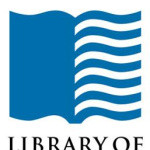- 업종: Culture; Government
- Number of terms: 1108
- Number of blossaries: 0
- Company Profile:
The Library of Congress is the U.S. oldest federal cultural institution and serves as the research arm of Congress. It is also the largest library in the world, with millions of books, recordings, photographs, maps and manuscripts in its collections.
Also Han Chinese. Term used to designate the ethnic majority, which constitutes 93 percent of the population. The fifty-five minority nationalities make up the remainder.
Industry:History
A quasi-constitutional united front (q. V. ) organization that provides an institutional framework for interaction between party and state leaders and representatives of mass groups and democratic parties (q. V. ). Members include distinguished scholars, educators, and intellectuals, key representatives of religious and minority nationality groups, and leading members of political parties loyal to the Chinese Communist Party during the anti-Guomindang years. The first CPPCC convened in 1949, the second in 1954, the third in 1959, the fourth in 1964, the fifth in 1978, and the sixth in 1983, the seventh was scheduled for 1988. The CPPCC's 1949 Common Program served as the law of the land until superseded by the 1954 state constitution.
Industry:History
In Marxist terms, the conflict waged by the masses of the workers and the oppressed under the leadership of the communist party against the privileged, oppressive, and property-owning ruling class. Until late 1978, class struggle was the official line of the Chinese Communist Party.
Industry:History
Term usually juxtaposed with "red" (q. V. ). Denotes special knowledge or skills, or both, relating to economic management, science, and technology. Cadres are required to be both red and expert, the emphasis on one or the other depending on the current political milieu.
Industry:History
China's monetary unit, which in mid-1987 had an exchange rate of US$1 to -Y3. 72, or -Y1 to US$. 269. The yuan is divided into 100 fen, and 10 fen constitute 1 jiao. The currency is known as renminbi (RMB), meaning the people's currency. The inscription renminbi (or renminbiao) appears on bank notes as well as yuan, and the terms renminbi and yuan are used synonymously in quoting exchange rates. In transactions the terms are universally replaced by the word kuai (piece). Beginning in the early 1980s, the standard currency was paralleled by a special currency called Foreign Exchange Certificates, which were issued in exchange for "hard" foreign currencies.
Industry:History
Person who holds any responsible position in either the party or the governmental apparatus throughout the nation. Term usually denotes a person in administrative work. It often denotes, in a more restricted sense, a person who has been fully indoctrinated in party ideology and methods and uses this training in his or her work.
Industry:History
Derived from the concept of "mass line". Party- directed campaign designed to mobilize the masses in support or execution of major policies. Such movements were characteristic of the 1950s through the 1970s and were controlled and coordinated by permanent mass organizations.
Industry:History
Chinese Communist Party strategy that attempts to utilize an organization or movement for the purpose of building a consensus and an organized following for party-supported programs and goals. Historically, the term is associated with the Guomindang-Chinese Communist Party first united front (1923-27) and second united front (1937-45).
Industry:History
As used by communists, term refers to political, economic, and social tendencies that stray to the right of orthodox Marxism- Leninism. The Chinese communists long insisted that these tendencies were counterrevolutionary and that internal and external enemies (such as the Soviet Union) were infected by this negative phenomenon.
Industry:History
Term for party policy aimed at broadening and cultivating contacts with the masses of the people and to accentuate the leadership role of the Chinese Communist Party.
Industry:History
